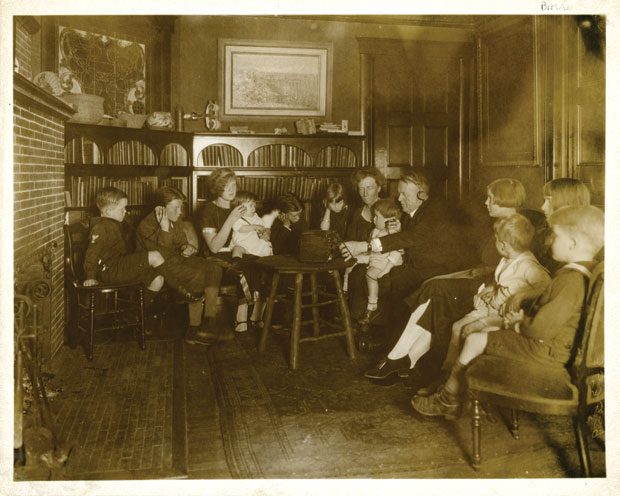
Peter Gilbreth has many memories of his late grandmother Lillian Gilbreth, whom everyone called Grand Dear. Lillian was the matriarch of the family of 12 children immortalized in the book Cheaper by the Dozen.
Lillian and her husband, Frank, raised their brood in a 14-room house in Montclair. Peter, an attorney with an office in Morristown and a home in Basking Ridge, is their only known descendant still living in New Jersey. He describes the Montclair apartment Lillian eventually moved to as a “personal library”—with papers and journals strewn throughout.
Lillian downsized to the apartment in 1939, but it was the big Victorian at 68 Eagle Rock Way that served as family residence and laboratory for Frank and Lillian’s experiments in time management and efficiency. Partners in a consulting firm, the senior Gilbreths first presented their ideas for streamlining the workplace in 1914.
It wasn’t hard for the Gilbreths to find guinea pigs. “Our house…was a sort of school for scientific management and elimination of wasted motions,” daughter Ernestine Gilbreth Carey wrote in Cheaper by the Dozen, which she co-authored with her brother, Frank.
The Gilbreths put Victrolas in their bathrooms so the children could learn a foreign language while using the facilities. The children were taught to button their shirts from the bottom up to save time, two seconds to be exact. They learned to touch type and do chores with the precision of a Swiss watch.
When Frank died of a heart attack in 1924 at the Erie Lackawanna train station in Montclair, Lillian was faced with the most crucial test of all: how to raise 11 children, aged 2 to 17. (One of the children, Mary, had died of diphtheria.)
Lillian, who had a PhD. in industrial psychology, began running the efficiency business on her own. In the family kitchen, she created a concept for a more efficient layout, one still in use today. Using her design, a homemaker could whip up a cake, put it in the oven and do the dishes with a minimum of steps. In 1929, she partnered with the Brooklyn Borough Gas Company to unveil her Kitchen Practical, showcasing the new gas appliances as well as her studies on motion savings.
Among other Gilbreth ideas still in use is a technique to teach military recruits how to rapidly disassemble and reassemble their weapons, even when blindfolded.
Lillian Gilbreth died in 1972 at age 93. Twelve years later, a postage stamp was dedicated in her honor in Montclair. According to grandson Peter, it was the last time the entire family was together. Peter’s uncle, 98-year-old Fred Gilbreth of Larchmont, New York, is Frank and Lillian’s last living child. He still thinks of his mother as “perfect.”
